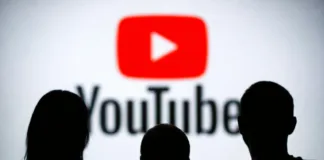Introduction
On May 28, 2025, Secretary of State Marco Rubio announced that, under President Trump’s directive, the United States would begin “aggressively revoking” visas for certain Chinese nationals studying in what it deemed “critical fields,” or with alleged ties to the Chinese Communist Party. Chinese students are banned from studying in the USA. New student visa interviews, Rubio added, would be suspended until further notice—pending enhanced social media and ideological vetting procedures
(Reuters, Wall Street Journal).
China remains the second-largest sender of international students to the U.S., with more than 277,000 Chinese nationals enrolled during the 2023–2024 academic year—roughly one in every four foreign students. At Harvard University, 1,282 degree-seeking students come from mainland China, accounting for over 30 percent of the graduate population—a statistic that, under this administration, has placed the Ivy League institution directly in Washington’s line of fire
(The Harvard Crimson, Al Jazeera).
Narrative One: A Student’s Story
“I came to Harvard to study AI—now I’m scrambling to find a Plan B.”
— Li Lei, 24, master’s candidate in Artificial Intelligence at Harvard
A Dream Deferred
Li Lei earned a full-tuition scholarship to Harvard last year. She had already booked a $1,200 flight to Boston, paid a security deposit on her apartment in Cambridge, and began preparing her graduate coursework—when she logged in to the U.S. visa portal on May 29 and found her interview had disappeared without warning. “It felt like the rug was pulled out from under me,” she says.
Across chat groups and forums, her peers shared similar fates: lost interviews, canceled flights, and panic. With orientation weeks away, some are now scrambling to defer admissions, transfer to Europe, or abandon plans entirely
(The Harvard Crimson, AP News).
Support Systems Under Pressure
On Harvard Yard, casual conversations among Chinese students have evolved into late-night “survival circles”—students sharing immigration lawyers, pooling funds for Canadian workarounds, or just being a shoulder to cry on. “We’re more than classmates now—we’re a lifeline,” Li explains.
To many, the broad scope of this executive order evokes an uncomfortable echo of the 1882 Chinese Exclusion Act. “It’s not just about security,” Li says. “It feels like history repeating itself—this time, through a different bureaucracy.”
(AP News, Al Jazeera)
Research Interrupted
These visa cancellations aren’t just affecting individuals—they’re unraveling labs and long-term research. From medical imaging to quantum computing, many projects depend on continuity. “We were on the verge of publishing a paper with Li’s name on it,” said one Harvard professor who asked to remain anonymous. “Now that timeline is broken.”
Universities nationwide are bracing for project delays, budget shortfalls, and cascading disruptions to federally funded work
(Reuters, The Harvard Crimson).
Narrative Two: Washington’s Rationale
Guarding Innovation from Espionage
The Trump administration argues the move is necessary to safeguard sensitive knowledge. Secretary Rubio framed it as a “national defense imperative,” pointing to research in AI, biotech, and quantum physics that could, in the government’s view, be repurposed by foreign military programs. Some students, he claimed, were “hand-picked by state-run institutions aligned with the People’s Liberation Army”
(CBS News).
A New Era of Vetting
The executive order also introduces expanded scrutiny of applicants’ social media accounts, requiring disclosure of all past handles and public commentary. While civil rights groups call this an infringement on free speech and privacy, administration officials insist it’s a logical evolution of post-9/11 visa policy
(NPR).
Harvard as a Battlefield
President Trump has gone so far as to single out Harvard University by name, demanding a cap of 15% on foreign student enrollment. When Harvard pushed back, the administration threatened to freeze .2 billion in federal research funding. Though a federal judge issued a temporary injunction against that financial retaliation, the visa policy stands—for now
(New York Post, The Washington Post).
A Deepening Divide
The current directive echoes and expands upon Proclamation 10043 (2020), which barred F- and J-visas for students with links to PLA-affiliated universities. But this latest move signals a shift from targeted enforcement to sweeping policy—broad enough to upend an entire demographic
(The Washington Post).
Your Third Narrative
We’ve witnessed Li Lei’s personal disruption and Washington’s national security logic. Now we turn to you to decide if Chinese students should be banned from the United States;
- Does this executive order defend the front lines of American innovation, or does it betray the principles of global academic freedom?
- Can national security be pursued without weaponizing immigration policy?
- What roles must universities, lawmakers, and students play in this widening geopolitical and ethical divide?
The third narrative is yours.
Sources
Reuters: U.S. says it will start revoking visas for Chinese students
AP News: Secretary of State Marco Rubio says the U.S. will begin revoking the visas of Chinese studentsAxios+2AP News+2AP News+2
The Harvard Crimson: DHS Will Move To Revoke Chinese Student Visas, Putting More Than 1,000 Harvard Students at RiskThe Harvard Crimson
NPR: Rubio says U.S. will ‘aggressively’ revoke visas for many Chinese studentsNPR
Politico: Trump’s latest visa clampdown is poised to blow a hole in college budgetsPolitico



[…] tighter still. UNAMA’s mid-year report confirmed that no girl could legally attend secondary or higher education. Jobs for women were scarce and often dangerous to hold. In the northern province of Balkh, local […]
[…] a spectacle of left vs. right—it decides the rules that shape daily life. From healthcare and education to war and peace, the way societies govern themselves determines freedom, justice, and prosperity. The […]